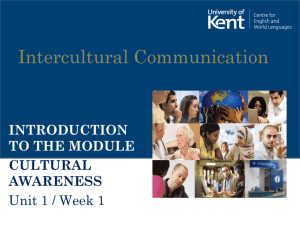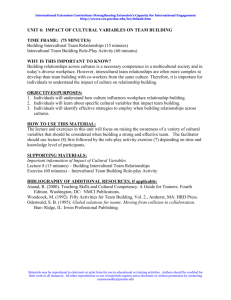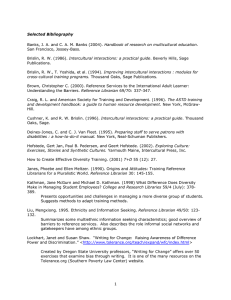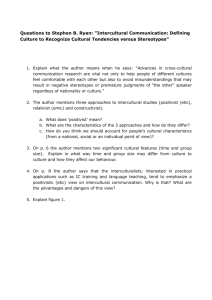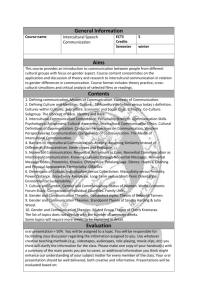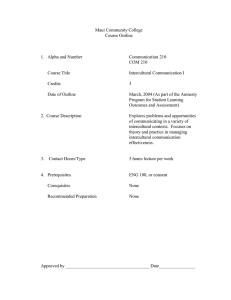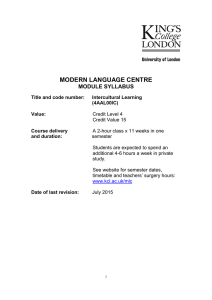Course outline
advertisement
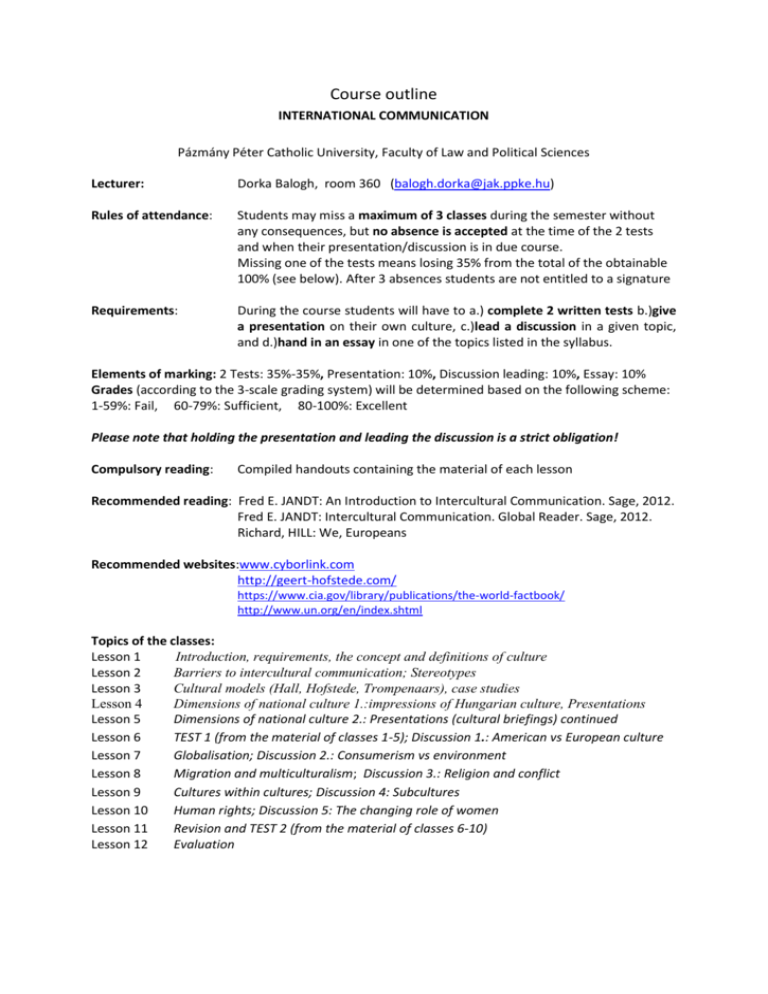
Course outline INTERNATIONAL COMMUNICATION Pázmány Péter Catholic University, Faculty of Law and Political Sciences Lecturer: Dorka Balogh, room 360 (balogh.dorka@jak.ppke.hu) Rules of attendance: Students may miss a maximum of 3 classes during the semester without any consequences, but no absence is accepted at the time of the 2 tests and when their presentation/discussion is in due course. Missing one of the tests means losing 35% from the total of the obtainable 100% (see below). After 3 absences students are not entitled to a signature Requirements: During the course students will have to a.) complete 2 written tests b.)give a presentation on their own culture, c.)lead a discussion in a given topic, and d.)hand in an essay in one of the topics listed in the syllabus. Elements of marking: 2 Tests: 35%-35%, Presentation: 10%, Discussion leading: 10%, Essay: 10% Grades (according to the 3-scale grading system) will be determined based on the following scheme: 1-59%: Fail, 60-79%: Sufficient, 80-100%: Excellent Please note that holding the presentation and leading the discussion is a strict obligation! Compulsory reading: Compiled handouts containing the material of each lesson Recommended reading: Fred E. JANDT: An Introduction to Intercultural Communication. Sage, 2012. Fred E. JANDT: Intercultural Communication. Global Reader. Sage, 2012. Richard, HILL: We, Europeans Recommended websites:www.cyborlink.com http://geert-hofstede.com/ https://www.cia.gov/library/publications/the-world-factbook/ http://www.un.org/en/index.shtml Topics of the classes: Lesson 1 Introduction, requirements, the concept and definitions of culture Lesson 2 Barriers to intercultural communication; Stereotypes Lesson 3 Cultural models (Hall, Hofstede, Trompenaars), case studies Lesson 4 Dimensions of national culture 1.:impressions of Hungarian culture, Presentations Lesson 5 Dimensions of national culture 2.: Presentations (cultural briefings) continued Lesson 6 TEST 1 (from the material of classes 1-5); Discussion 1.: American vs European culture Lesson 7 Globalisation; Discussion 2.: Consumerism vs environment Lesson 8 Migration and multiculturalism; Discussion 3.: Religion and conflict Lesson 9 Cultures within cultures; Discussion 4: Subcultures Lesson 10 Human rights; Discussion 5: The changing role of women Lesson 11 Revision and TEST 2 (from the material of classes 6-10) Lesson 12 Evaluation
